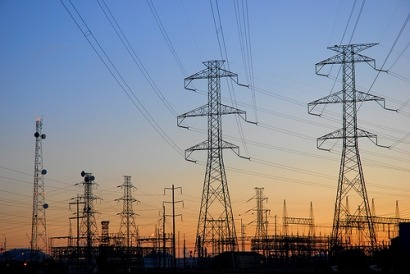
The projects will revolutionise the electricity distribution system, and help to prepare the energy industry for the move towards a low carbon economy, SSEPD said in a written statement.
“Britain’s energy grids need to undergo a revolution in how they are run so they can connect more renewable generators and a range of low carbon technologies,” said Rachel Fletcher, Ofgem’s acting senior partner for Smarter Grids, Governance and Distribution.
“There is a significant opportunity for companies to contain the cost of this transition by making better use of existing capacity and exploring the scope to use demand side response,” she continued, adding, “Lessons learnt from the projects will be shared with all network companies and other interested parties. The aim here is to ensure the networks do not hold up the decarbonisation of our energy use, and that the cost of the transition is kept as low as possible for customers.”
The New Thames Valley Vision (NTVV) is a £30 million project in Bracknell which aims to prepare the local low voltage network for the changes that lie ahead as more people adopt new technologies for generating electricity.
The move towards a low carbon economy means that more demands will be made on the electricity network as electricity generated from renewable sources starts to replace other forms of power, SSEPD said.
In particular, electricity flowing from solar panels, along with the charging of electric vehicles changing the times at which energy is needed, means that SSEPD has to invest in the network to make sure it is secure. Network operators need to know more about electricity flows on the network in order to manage it effectively.
NTVV will apply ‘smart analytics’ to the information it gathers to help develop models which will allow distribution assets to be used even more effectively. The project will involve a new network and planning environment, automated demand side management for businesses, low voltage static voltage control, street level energy storage and a range of communications solutions. It will also deliver new commercial agreements, procedures and policies and will inform national standards.
The Northern Isles New Energy Solutions (NINES) is a £34 million project, which will address some of the most pressing energy challenges Shetland currently faces by allowing small scale renewable generation to play a more significant role in meeting the islands’ energy needs.
“These two projects have the potential to revolutionise the way in which Distribution Network Operators utilise their existing networks,” said Mark Mathieson , Scottish and Southern Energy Power Distribution’s Managing Director.
“They will allow us to anticipate, understand and support behaviour change in individuals, small businesses and larger companies, to help us manage our networks more effectively as the UK leads towards a low carbon economy,” Mathieson added.
For additional information:

